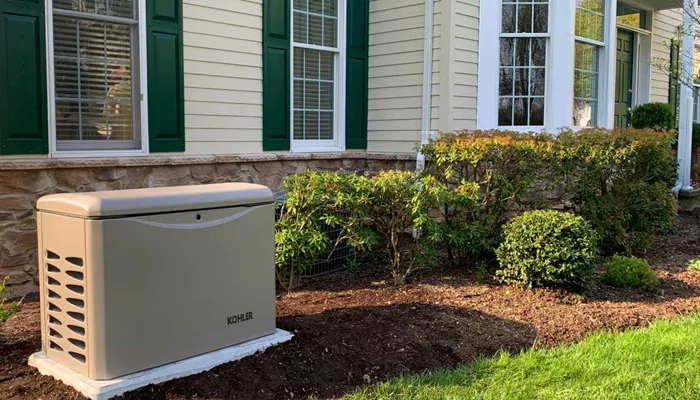Home generators are essential for providing backup power during outages. Many homeowners choose propane-powered generators because propane is clean-burning, efficient, and easy to store. However, understanding how much propane a generator uses is crucial for planning fuel storage and budgeting. In this article, we’ll explore propane consumption in home generators, factors affecting usage, and tips to improve efficiency.
How Propane Generators Work
Propane generators operate by burning propane gas to produce electricity. They function similarly to gasoline or diesel generators but use a different fuel source. Here’s a simplified breakdown:
Fuel Combustion: The generator’s engine burns propane, creating mechanical energy.
Alternator Conversion: The mechanical energy spins an alternator, generating electricity.
Power Distribution: The electricity is sent to your home’s electrical panel, powering essential appliances.
Propane is stored in tanks, either above or below ground, and is delivered via a regulated gas line to the generator.
Factors Affecting Propane Consumption
Several factors influence how much propane a home generator uses:
Generator Size (Wattage)
Generators are rated in watts (W) or kilowatts (kW). The larger the generator, the more propane it consumes.
Small Generators (3,000–5,000W): Ideal for powering essential appliances like refrigerators and lights.
Medium Generators (7,500–10,000W): Can run most household appliances, including HVAC systems.
Large Generators (15,000W and above): Suitable for whole-house power.
Load Capacity
The more appliances you run, the harder the generator works, increasing propane usage. Running at 50% load consumes less fuel than running at 90% load.
Efficiency Rating
Generators have different efficiency levels. Modern inverter generators are more fuel-efficient than conventional models.
Runtime
The longer the generator runs, the more propane it burns. Extended power outages require larger propane reserves.
Ambient Temperature
Cold weather can reduce propane tank pressure, making the generator work harder and consume more fuel.
How Long Will a Propane Tank Last?
Propane tanks come in various sizes:
20 lbs (5 gallons): Portable tanks for small generators.
100 lbs (25 gallons): Common for residential backup.
500 gallons or more: Used for whole-house generators.
Estimated Runtime
5 kW Generator (50% load, 0.75 GPH)
20-lb Tank: ~6.5 hours
100-lb Tank: ~33 hours
500-gallon Tank: ~660 hours (27.5 days)
20 kW Generator (50% load, 2.0 GPH)
100-lb Tank: ~12.5 hours
500-gallon Tank: ~250 hours (10.4 days)
Tips to Reduce Propane Usage
Use Only Essential Appliances: Prioritize refrigerators, medical devices, and lighting.
Opt for Energy-Efficient Models: Inverter generators adjust fuel use based on demand.
Perform Regular Maintenance: Clean air filters and spark plugs for optimal efficiency.
Insulate Propane Tanks in Cold Weather: Prevents pressure drops and improves fuel flow.
Consider a Dual-Fuel Generator: Runs on propane and gasoline, offering flexibility.
Conclusion
Propane home generators are reliable but require proper fuel planning. Consumption depends on generator size, load, and efficiency. A 10 kW generator may use 1–2 GPH, meaning a 500-gallon tank could last 10–20 days under moderate use.
By optimizing usage and maintaining your generator, you can maximize efficiency and ensure uninterrupted power during outages. If you’re unsure about your generator’s fuel needs, consult the manufacturer’s specifications or a professional electrician. Would you like recommendations on the best propane generators? Let us know in the comments!

